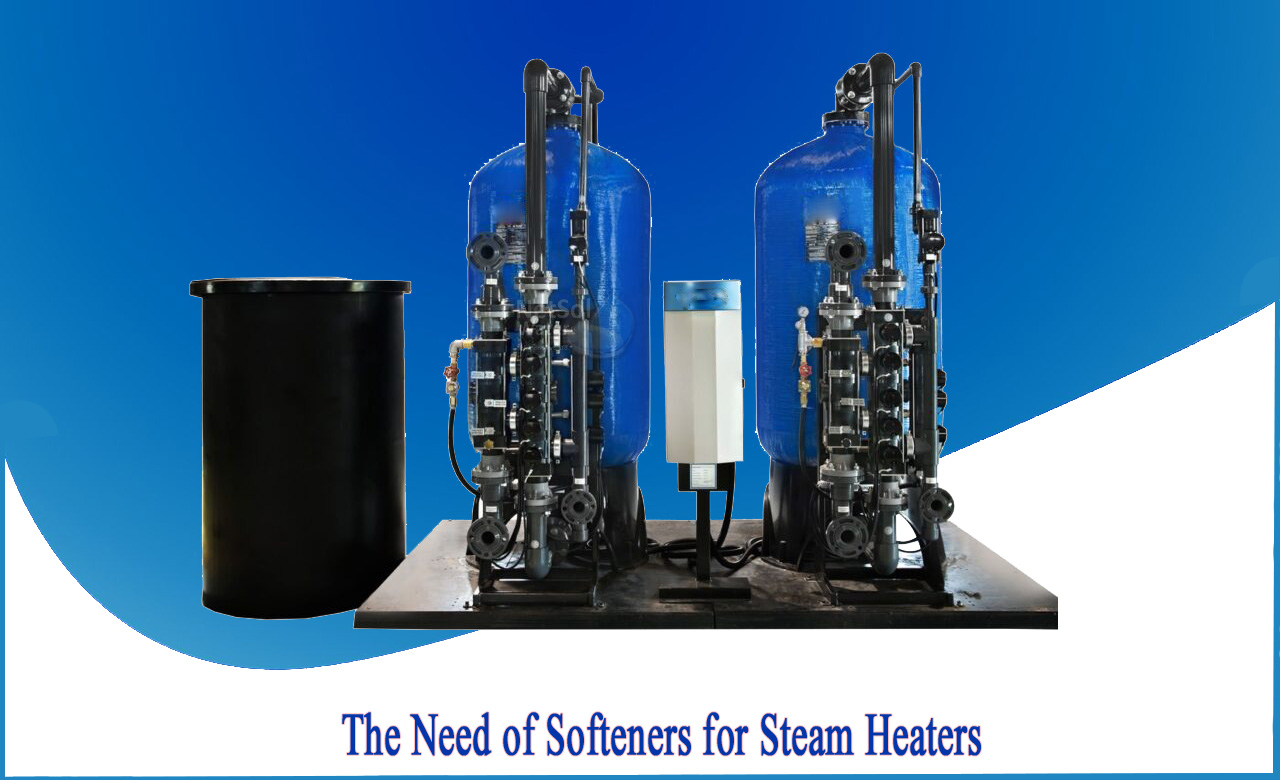INTRODUCTION
Hard water dissolves calcium and magnesium salts. It tends to form scales (also known as lime scales) on the walls of boilers and must thus be softened before use in industries. These scales minimise the heat conductivity of boilers, sometimes causing them to fail.
One of the leading causes of poor boiler performance is insufficient water treatment. Improper water treatment, or the failure to treat your boiler water at all, can cause irreversible boiler tube damage known as scaling. To prevent scaling, boiler water should be passed through a water softener before being fed into the boiler.
A water softener eliminates hard water minerals such as calcium and magnesium that can cause scaling and damage in boiler tubes. Scale deposits, which act as an insulator, can obstruct proper heat transfer, reduce boiler efficiency, and result in costly downtime and even premature boiler failure.
Do I need a water softener for my Steam Heater?
A water softener is one of the most important accessories you can have for your steam boiler. It serves several functions and is critical in helping your boiler avoid malfunctions and run more efficiently.
Let's start at the beginning and look at how water softeners are used in steam boilers.
-Water from your city's water treatment plant has trace amounts of dissolved solids, such as minerals like calcium and magnesium, which can affect the tubes inside steam boilers. If these minerals are available in the boiler's water supply, they can cause hard scale build-up on the surface of the tubes, reducing water heat transfer and eventually overheating the tubes.
-The efficiency of a boiler can also be harmed by hard water. The presence of calcium and magnesium will have an effect on heat transfer inside the boiler if they cause hard scaling. A sheet of hard scaling as thin as 1/8 inch on boiler tubes can minimise efficiency by up to 25%. This will only make the boiler work harder and consume more fuel to meet your steam requirements.
A water softener that works in tandem with your boiler can solve both of these potential issues. Water softeners start introducing sodium compounds into the boiler's water supply to delete calcium and magnesium, effectively resolving the hard water issue.
A water softener will lower the risk of hard scaling inside the boiler, improve water flow, ensure highest productivity, and assist your boiler in avoiding failures or damage that could shorten its lifespan.
CONCLUSION
The leading manufacturer of all water treatment systems is NETSOL WATER.
We ensure that all of our customers' needs are met. Netsol water softeners can be integrated with the control panel and monitoring system of a boiler. A hardness detection system could also be installed to test the hardness of the boiler's water supply automatically. The water softener will be activated if necessary to inject sodium substances into the water to balance out the hardness. This is the simplest way to determine if hard water is a problem and to address it.
Netsol Water is Greater Noida-based leading water & wastewater treatment plant manufacturer. We are industry's most demanding company based on client review and work quality. We are known as best commercial RO plant manufacturers, industrial RO plant manufacturer, sewage treatment plant manufacturer, Water Softener Plant Manufacturers and effluent treatment plant manufacturers. Apart from this 24x7 customer support is our USP. Call on +91-9650608473, or write us at enquiry@netsolwater.com for any support, inquiry or product-purchase related query.



